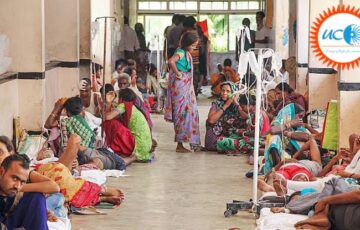Q. Self Help Groups play a crucial role in providing self-employment, training and social mobilization, thereby ameliorating the standard of living of the rural people. Discuss.
Approach
|
Answer
Self Help Groups (SHGs) are voluntary associations of people with common interests formed to achieve collective social and economic goals. Such groups are organized for mutual help and benefit. It is formed democratically without any political affiliations.
Rural areas face numerous problems related to poverty, illiteracy, lack of skills, lack of formal credit etc. These problems cannot be tackled at an individual level and need collective efforts through SHGs.
The SHGs play a vital role in rural development by providing self-employment, training and social mobilization, which can be seen as follows
Role in self-employment
- Promotion of enterprises: SHGs promote entrepreneurship among the poor through credit support, product development, marketing etc. Thus, they address the issue of unemployment in rural areas and enhance the standard of living.
- Employment of women: SHGs have mobilized about 46 million women in India and have raised their income and helped them in getting economic self-reliance promoting gender equity.
- Alternative source of employment: It eases dependency on agriculture by providing support in setting up micro-enterprises e.g., personalized business ventures like tailoring, grocery, and tool repair shops.
Role in training
- Enhancing human capital: SHGs such as Self-Employed Women’s Association (SEWA), Kudumbashree etc. provide opportunities to rural women by enhancing human capital through training, workshops etc., which enables them to contribute towards their community development.
- Skill development: Various SHGs operating as micro-enterprises like in pickle manufacture, agarbati making, honey and food processing, spices production, etc. not only enhance skill development but also help rural people to make products according to the local demand.
- Capacity building: SHGs through training of its members build their ability to take risks, understand and solve problems and try new ventures.
Role in Social Mobilization
- Social empowerment: SHGs ensure equality of status of women as participants, decision-makers and beneficiaries in the democratic, economic, social and cultural spheres of life. Empowered women participate more actively in gram Sabha and elections.
- Awareness related to social issues: SHGs play a key role in mobilization of society against social issues such as child marriage, unsafe sex, etc. For instance, through association with NGOs and other development interventions, SHGs can provide adult education to the rural people so that they come to know about safe sex practices.
- Health mobilization: SHGs helps in the eradication of diseases like Tuberculosis, Polio, and Acquired Immune Deficiency Syndrome (AIDS), which are common among the rural people by informing them about the benefits of programs launched by the Ministry of Health and Family Welfare.
- Financial discipline and inclusion: The members of the SHGs are encouraged to open saving accounts in banks, which helps in increased spending of education and health thus improving their living standards.
Way Forward
- However, SHGs still are plagued with certain challenges such as a lack of permanent markets for their products, a lack of rural banking facilities, still based on primitive skills, etc. The government has taken steps like the Women SHG Development Fund, Digitalization of SHGs- ‘EShakti’, etc. to address these challenges.
- SHGs serve as engines of empowerment and growth in India by bringing positive changes in the lives of poor people in rural areas. It is a movement that has achieved a grand success by bringing women into all economic activities which give benefits to not only individuals but also family and community as a whole through collective action for the development.






